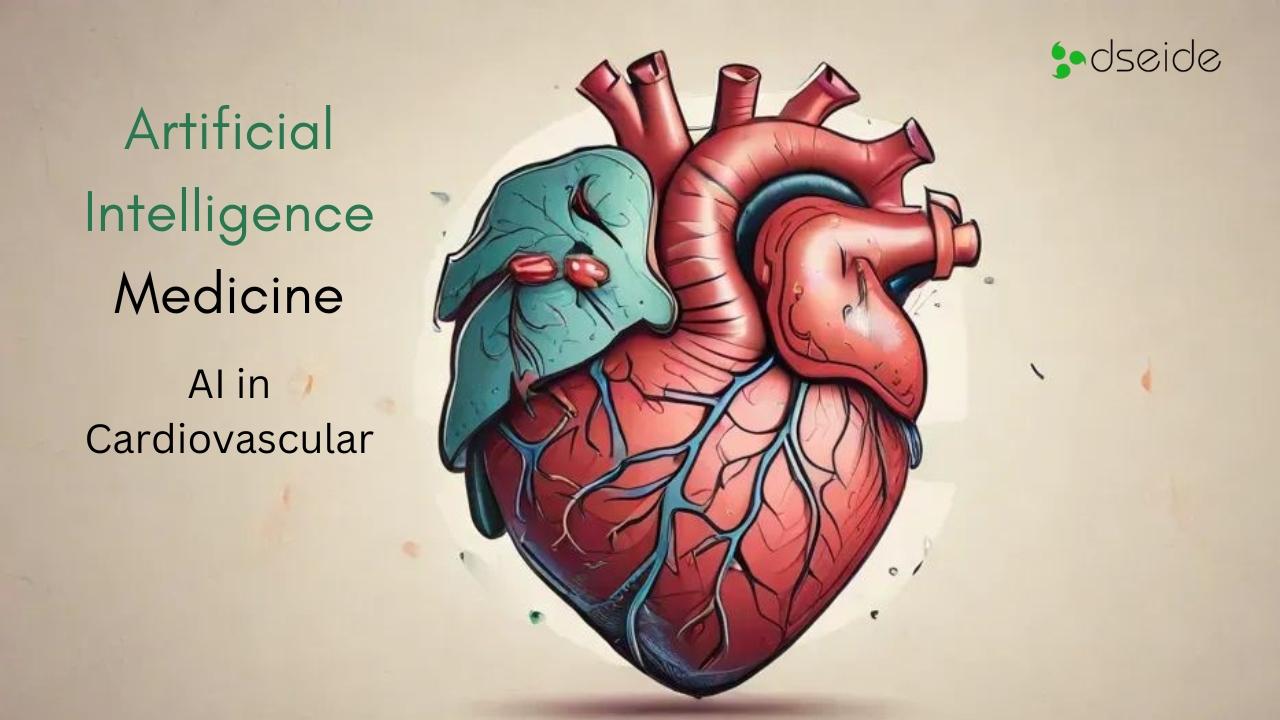Artificial Intelligence (AI) in Cardiovascular Medicine: Overview
The integration of artificial intelligence (AI) into clinical practice is transforming how heart diseases are detected, diagnosed, and treated. At the forefront of this movement is the Mayo Clinic, where heart doctors and scientists are collaborating to leverage AI's benefits for people with cardiovascular conditions.
AI in Cardiology at Mayo Clinic
Mayo Clinic is recognized as a leader in bringing AI tools and technologies into clinical practice, especially for cardiovascular care. The AI cardiology team at Mayo is focused on early risk prediction and the diagnosis of complex heart problems, enhancing patient care through innovative AI research and expertise.
AI in Medicine: A General Overview
Artificial intelligence refers to the simulation of human intelligence by machines, particularly computer systems. In medicine, AI is being used to rapidly process and analyze data, thereby improving treatment outcomes. At Mayo Clinic, AI applications include:
Detecting heart disease: AI tools have shown great potential in identifying heart problems early, even in cases where symptoms are not obvious.
Treating strokes more efficiently: AI algorithms help in quickly analyzing CT scans for stroke diagnosis.
Enhancing diagnostic radiology capabilities: For example, an AI screening tool developed at Mayo Clinic detected left ventricular dysfunction, a heart condition with no clear symptoms, with 93% accuracy—surpassing the 85% accuracy rate of a mammogram. AI technology from Mayo Clinic is also used in Apple Watches to detect low ventricular ejection fraction, indicating a weak heart pump.
These AI applications support doctors in clinical settings, allowing more time for patient care and improving the shared decision-making process.
Basic Concepts of AI in Medicine
AI systems learn to solve complex problems by analyzing large volumes of data, which enhances decision-making, diagnosis, and treatment in health care. The fundamental building block of AI is a "neural network," which is trained to recognize patterns in data, such as electrocardiograms (ECGs), to detect heart conditions and predict future health risks.
Mayo Clinic’s long-standing patient care history provides a substantial database of genomic, diagnostic, and clinical data, making it an ideal setting for advancing AI applications in health care. The close collaboration among doctors, engineers, and scientists at Mayo is driving meaningful AI innovations.
From Research to Clinical Practice
Mayo Clinic is pioneering several AI applications in clinical cardiology:
Stroke Management: AI helps in the rapid analysis of CT scans in emergency rooms for patients with strokes, reducing diagnosis time and potentially limiting brain damage.
Heart Failure Prevention: AI tools applied to ECGs provide a low-cost, scalable test for detecting a weak heart pump, which can lead to heart failure if untreated. Mayo Clinic's vast database of 7 million ECGs is instrumental in refining this technology.
Early Detection of Atrial Fibrillation (AFib): AI-powered ECGs can identify irregular heart rhythms, known as AFib, before symptoms appear.
Innovation through Collaboration
At Mayo Clinic, a multidisciplinary team approach is crucial to advancing AI in health care. Experts from cardiovascular medicine, neurology, oncology, and radiology collaborate to validate AI tools that enhance patient care. These innovations are widely shared in medical literature to benefit a broader audience.
AI also plays a significant role in education at Mayo Clinic, helping medical students, residents, fellows, and surgeons learn new or rare procedures. Mayo Clinic also hosts AI symposiums to bring together medical professionals and scientists to advance AI research in health care.
Future Directions in AI for Cardiovascular Care
Ongoing AI research at Mayo Clinic includes:
Predicting risk early for conditions like embolic stroke.
Monitoring heart conditions using smart clothing.
Developing AI technologies compatible with smartphones and advanced stethoscopes.
Mayo Clinic continues to push the boundaries of AI in health care through collaboration among physicians, scientists, and engineers. You can find more about Mayo Clinic's research and publications on cardiovascular AI on PubMed, a service of the National Library of Medicine.
Research Profiles:
Paul A. Friedman, M.D.
Suraj Kapa, M.D.
Francisco Lopez-Jimenez, M.D., M.B.A.
Peter A. Noseworthy, M.D.
source:- mayoclinic
The integration of artificial intelligence (AI) into clinical practice is transforming how heart diseases are detected, diagnosed, and treated. At the forefront of this movement is the Mayo Clinic, where heart doctors and scientists are collaborating to leverage AI's benefits for people with cardiovascular conditions.
AI in Cardiology at Mayo Clinic
Mayo Clinic is recognized as a leader in bringing AI tools and technologies into clinical practice, especially for cardiovascular care. The AI cardiology team at Mayo is focused on early risk prediction and the diagnosis of complex heart problems, enhancing patient care through innovative AI research and expertise.
AI in Medicine: A General Overview
Artificial intelligence refers to the simulation of human intelligence by machines, particularly computer systems. In medicine, AI is being used to rapidly process and analyze data, thereby improving treatment outcomes. At Mayo Clinic, AI applications include:
Detecting heart disease: AI tools have shown great potential in identifying heart problems early, even in cases where symptoms are not obvious.
Treating strokes more efficiently: AI algorithms help in quickly analyzing CT scans for stroke diagnosis.
Enhancing diagnostic radiology capabilities: For example, an AI screening tool developed at Mayo Clinic detected left ventricular dysfunction, a heart condition with no clear symptoms, with 93% accuracy—surpassing the 85% accuracy rate of a mammogram. AI technology from Mayo Clinic is also used in Apple Watches to detect low ventricular ejection fraction, indicating a weak heart pump.
These AI applications support doctors in clinical settings, allowing more time for patient care and improving the shared decision-making process.
Basic Concepts of AI in Medicine
AI systems learn to solve complex problems by analyzing large volumes of data, which enhances decision-making, diagnosis, and treatment in health care. The fundamental building block of AI is a "neural network," which is trained to recognize patterns in data, such as electrocardiograms (ECGs), to detect heart conditions and predict future health risks.
Mayo Clinic’s long-standing patient care history provides a substantial database of genomic, diagnostic, and clinical data, making it an ideal setting for advancing AI applications in health care. The close collaboration among doctors, engineers, and scientists at Mayo is driving meaningful AI innovations.
From Research to Clinical Practice
Mayo Clinic is pioneering several AI applications in clinical cardiology:
Stroke Management: AI helps in the rapid analysis of CT scans in emergency rooms for patients with strokes, reducing diagnosis time and potentially limiting brain damage.
Heart Failure Prevention: AI tools applied to ECGs provide a low-cost, scalable test for detecting a weak heart pump, which can lead to heart failure if untreated. Mayo Clinic's vast database of 7 million ECGs is instrumental in refining this technology.
Early Detection of Atrial Fibrillation (AFib): AI-powered ECGs can identify irregular heart rhythms, known as AFib, before symptoms appear.
Innovation through Collaboration
At Mayo Clinic, a multidisciplinary team approach is crucial to advancing AI in health care. Experts from cardiovascular medicine, neurology, oncology, and radiology collaborate to validate AI tools that enhance patient care. These innovations are widely shared in medical literature to benefit a broader audience.
AI also plays a significant role in education at Mayo Clinic, helping medical students, residents, fellows, and surgeons learn new or rare procedures. Mayo Clinic also hosts AI symposiums to bring together medical professionals and scientists to advance AI research in health care.
Future Directions in AI for Cardiovascular Care
Ongoing AI research at Mayo Clinic includes:
Predicting risk early for conditions like embolic stroke.
Monitoring heart conditions using smart clothing.
Developing AI technologies compatible with smartphones and advanced stethoscopes.
Mayo Clinic continues to push the boundaries of AI in health care through collaboration among physicians, scientists, and engineers. You can find more about Mayo Clinic's research and publications on cardiovascular AI on PubMed, a service of the National Library of Medicine.
Research Profiles:
Paul A. Friedman, M.D.
Suraj Kapa, M.D.
Francisco Lopez-Jimenez, M.D., M.B.A.
Peter A. Noseworthy, M.D.
source:- mayoclinic
Artificial Intelligence (AI) in Cardiovascular Medicine: Overview
The integration of artificial intelligence (AI) into clinical practice is transforming how heart diseases are detected, diagnosed, and treated. At the forefront of this movement is the Mayo Clinic, where heart doctors and scientists are collaborating to leverage AI's benefits for people with cardiovascular conditions.
AI in Cardiology at Mayo Clinic
Mayo Clinic is recognized as a leader in bringing AI tools and technologies into clinical practice, especially for cardiovascular care. The AI cardiology team at Mayo is focused on early risk prediction and the diagnosis of complex heart problems, enhancing patient care through innovative AI research and expertise.
AI in Medicine: A General Overview
Artificial intelligence refers to the simulation of human intelligence by machines, particularly computer systems. In medicine, AI is being used to rapidly process and analyze data, thereby improving treatment outcomes. At Mayo Clinic, AI applications include:
Detecting heart disease: AI tools have shown great potential in identifying heart problems early, even in cases where symptoms are not obvious.
Treating strokes more efficiently: AI algorithms help in quickly analyzing CT scans for stroke diagnosis.
Enhancing diagnostic radiology capabilities: For example, an AI screening tool developed at Mayo Clinic detected left ventricular dysfunction, a heart condition with no clear symptoms, with 93% accuracy—surpassing the 85% accuracy rate of a mammogram. AI technology from Mayo Clinic is also used in Apple Watches to detect low ventricular ejection fraction, indicating a weak heart pump.
These AI applications support doctors in clinical settings, allowing more time for patient care and improving the shared decision-making process.
Basic Concepts of AI in Medicine
AI systems learn to solve complex problems by analyzing large volumes of data, which enhances decision-making, diagnosis, and treatment in health care. The fundamental building block of AI is a "neural network," which is trained to recognize patterns in data, such as electrocardiograms (ECGs), to detect heart conditions and predict future health risks.
Mayo Clinic’s long-standing patient care history provides a substantial database of genomic, diagnostic, and clinical data, making it an ideal setting for advancing AI applications in health care. The close collaboration among doctors, engineers, and scientists at Mayo is driving meaningful AI innovations.
From Research to Clinical Practice
Mayo Clinic is pioneering several AI applications in clinical cardiology:
Stroke Management: AI helps in the rapid analysis of CT scans in emergency rooms for patients with strokes, reducing diagnosis time and potentially limiting brain damage.
Heart Failure Prevention: AI tools applied to ECGs provide a low-cost, scalable test for detecting a weak heart pump, which can lead to heart failure if untreated. Mayo Clinic's vast database of 7 million ECGs is instrumental in refining this technology.
Early Detection of Atrial Fibrillation (AFib): AI-powered ECGs can identify irregular heart rhythms, known as AFib, before symptoms appear.
Innovation through Collaboration
At Mayo Clinic, a multidisciplinary team approach is crucial to advancing AI in health care. Experts from cardiovascular medicine, neurology, oncology, and radiology collaborate to validate AI tools that enhance patient care. These innovations are widely shared in medical literature to benefit a broader audience.
AI also plays a significant role in education at Mayo Clinic, helping medical students, residents, fellows, and surgeons learn new or rare procedures. Mayo Clinic also hosts AI symposiums to bring together medical professionals and scientists to advance AI research in health care.
Future Directions in AI for Cardiovascular Care
Ongoing AI research at Mayo Clinic includes:
Predicting risk early for conditions like embolic stroke.
Monitoring heart conditions using smart clothing.
Developing AI technologies compatible with smartphones and advanced stethoscopes.
Mayo Clinic continues to push the boundaries of AI in health care through collaboration among physicians, scientists, and engineers. You can find more about Mayo Clinic's research and publications on cardiovascular AI on PubMed, a service of the National Library of Medicine.
Research Profiles:
Paul A. Friedman, M.D.
Suraj Kapa, M.D.
Francisco Lopez-Jimenez, M.D., M.B.A.
Peter A. Noseworthy, M.D.
source:- mayoclinic





